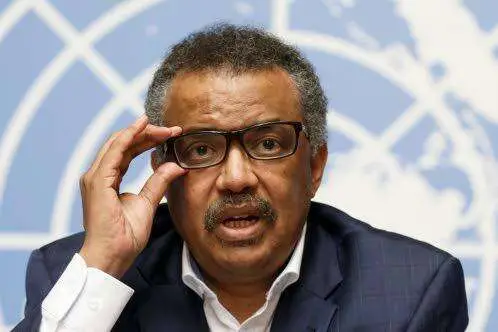GENEVA — In a pivotal turn of events for global health diplomacy, member nations of the World Health Organization (WHO) finalized a sweeping agreement early Wednesday morning that lays the foundation for a unified response to future pandemics — a move driven by the harsh lessons of COVID-19 and the looming threat of emerging infectious diseases.
The breakthrough came after an exhaustive series of negotiations that stretched late into the night, with diplomats and health officials eventually aligning behind a 32-page framework. Applause echoed through WHO’s Geneva headquarters at 2:00 a.m. as delegates signed off on what many are calling the most significant multilateral health accord in recent history.
“This agreement is not just about science and safety,” said WHO Director-General Tedros Adhanom Ghebreyesus. “It’s a statement of solidarity — proof that countries, despite their differences, can come together to defend humanity against shared biological threats.”
The accord outlines global commitments on data sharing, disease surveillance, vaccine distribution, and emergency financing — all measures aimed at improving the international community’s ability to detect and respond to pandemics more equitably and efficiently.
A Fragile Consensus
Despite the celebratory mood, the path to consensus was fraught with geopolitical friction. Talks teetered on collapse over disagreements on intellectual property rights and technology transfers — particularly provisions in Article 11, which proposed that pandemic-related medical innovations be shared with lower-income nations.
While developing countries advocated for mandatory sharing mechanisms, wealthier nations with robust pharmaceutical sectors pushed back, favoring voluntary cooperation. In a diplomatic compromise, the final wording now reflects that any transfer of critical medical technology must be “mutually agreed.”
Echoes of COVID-19
Five years after COVID-19 exposed deep imbalances in global healthcare access, the memory of vaccine nationalism and supply hoarding loomed over negotiations. The pandemic’s death toll, combined with billions in economic losses, created mounting pressure to ensure this new agreement avoids a repeat of past failings.
Emerging diseases such as avian flu, Ebola, and mpox have further stoked anxieties, underscoring the urgent need for better cross-border coordination and equitable resource allocation.
Absent Powers, Lingering Shadows
Notably absent from the final talks was the United States. The country’s withdrawal from WHO leadership under former President Donald Trump — coupled with proposed tariffs on pharmaceutical imports — cast a shadow of uncertainty over the agreement’s future enforcement. Still, negotiators pressed forward, with European, African, Latin American, and Asian blocs carrying the deal over the finish line.
“The fact that consensus was reached despite major global tensions is nothing short of extraordinary,” said Anne-Claire Amprou, the French diplomat who co-chaired the talks. “We’ve proven that diplomacy still has the power to deliver, even when the odds are stacked.”
Next Steps
The accord will be formally presented for adoption at the WHO’s World Health Assembly next month, where it is expected to receive official endorsement. Once ratified, it will serve as a blueprint for global cooperation in the event of another pandemic — setting new legal and ethical standards for transparency, accountability, and solidarity.
For now, the world watches — cautiously optimistic that the next outbreak will be met not with chaos, but with coordination.

